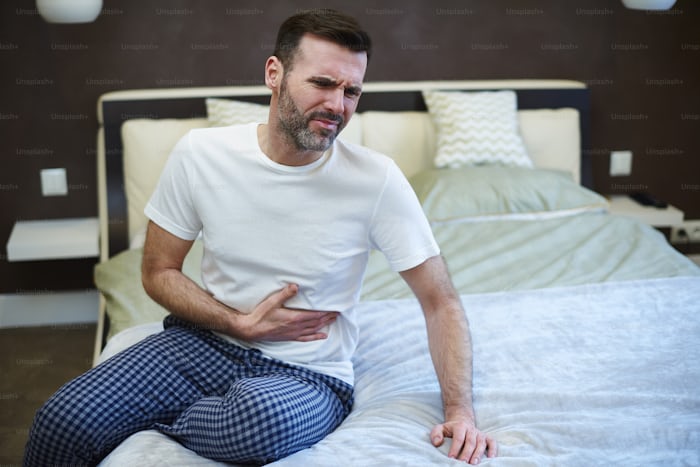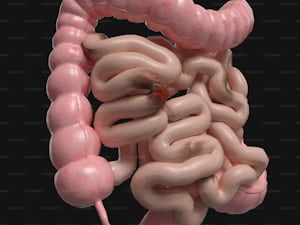Table of Contents
Have you ever accidentally ate gluten and felt a wave of panic wash over you? If you’re living with celiac disease or gluten sensitivity, this scenario might be all too familiar. Whether it’s a mix-up at a restaurant or a hidden ingredient in a seemingly safe snack, accidentally consuming gluten can happen to even the most cautious individuals.

In this article, we’ll explore what to do if you’ve accidentally ate gluten, how to recognize the symptoms, and steps you can take to ease your discomfort. Don’t worry – we’ve got you covered with practical advice and reassuring tips to help you navigate this tricky situation.
Understanding Gluten Exposure: What Happens When You Slip Up
When you’ve accidentally ate gluten, it’s important to understand the process your body goes through. This knowledge can help you manage your symptoms and recovery more effectively.
For those with celiac disease
- When gluten enters your system, your immune system reacts aggressively. It views the gluten proteins as invaders and launches an attack. This immune response primarily targets your small intestine, where most nutrient absorption occurs. The reaction can damage the tiny, finger-like projections called villi that line your intestinal walls. These villi are crucial for absorbing nutrients from food, so any damage can lead to malabsorption issues. Even a small amount of gluten – as little as a crumb – can trigger this response in people with celiac disease. The effects can last for several days to weeks as your body works to repair the damage.
For those with non-celiac gluten sensitivity
- If you’ve accidentally ate gluten and you have non-celiac gluten sensitivity, your body’s reaction is different. While the exact mechanisms aren’t fully understood, research suggests that gluten exposure can trigger inflammation throughout your body, not just in your digestive system. This systemic inflammation can lead to a wide range of symptoms, from digestive discomfort to fatigue and brain fog.

For individuals with wheat allergy
- Accidentally eating gluten when you have a wheat allergy can lead to an immediate allergic reaction. Your immune system produces antibodies to wheat proteins, which can cause symptoms ranging from mild (like hives or itching) to severe (such as anaphylaxis in rare cases). It’s worth noting that the severity and duration of symptoms can vary widely among individuals and even from one exposure to another. Factors like the amount of gluten consumed, your overall health, and how strictly you usually adhere to a gluten-free diet can all influence your body’s response.
While accidentally eating gluten can feel like a major setback, it’s important to remember that your body has remarkable healing capabilities. For most people, especially those who maintain a strict gluten-free diet most of the time, a single exposure won’t cause long-term damage. However, repeated exposures can lead to more serious health issues for those with celiac disease.
Understanding these processes can help you be more patient with your body as it works to recover from accidental gluten exposure. It also underscores the importance of maintaining a gluten-free diet to protect your long-term health if you have a gluten-related disorder.

Common Symptoms: How Your Body Reacts to Accidental Gluten Intake
Recognizing the signs of gluten exposure can help you act quickly and manage your symptoms. While reactions can vary widely, here are some common symptoms to watch out for:
Digestive distress:
- Abdominal pain or cramping
- Bloating
- Diarrhea or constipation
- Nausea or vomiting
Neurological effects:
- Brain fog or difficulty concentrating
- Headaches
- Fatigue or feeling unusually tired
Skin reactions:
- Itchy skin rashes, particularly dermatitis herpetiformis in celiac disease
- Eczema flare-ups

Mood changes:
- Irritability
- Anxiety
- Depression symptoms
Other potential symptoms:
- Joint pain
- Muscle aches
- Unexpected weight loss
Remember, symptoms can appear within minutes or take up to several days to manifest. The severity and duration can depend on factors like the amount of gluten consumed and your individual sensitivity.
It’s crucial to note that not everyone experiences all these symptoms, and some people might have no noticeable immediate reactions. However, for those with celiac disease, even symptom-free exposure can cause internal damage.
If you’re unsure whether your symptoms are related to gluten exposure or if they persist or worsen, don’t hesitate to consult your healthcare provider. They can offer personalized advice and ensure you’re not dealing with a more serious issue.

Immediate Steps: What to Do Right After Realizing You’ve Eaten Gluten
Discovering you’ve accidentally consumed gluten can be stressful, but taking prompt action can help minimize discomfort. Here’s what you can do:
- Don’t panic: Stress can worsen symptoms. Take a deep breath and remember that this is temporary.
- Stay hydrated: Drink plenty of water to help flush your system and prevent dehydration, especially if you’re experiencing diarrhea.
- Avoid additional gluten: Stop eating immediately if you’re still consuming the problematic food. Check other foods you’ve eaten recently for hidden sources of gluten.
- Consider digestive aids: Some people find relief with over-the-counter digestive enzymes designed to break down gluten, though their effectiveness varies.
- Rest: Your body is working hard to process the gluten. If possible, take it easy and get extra rest.
- Use anti-inflammatory foods: Incorporate foods known for their anti-inflammatory properties, such as ginger, turmeric, or bone broth, if tolerated.
- Avoid dairy temporarily: Some people find that avoiding dairy helps reduce symptoms during a gluten reaction.
- Track your symptoms: Note when symptoms start, their severity, and how long they last. This information can be valuable for future reference or to share with your healthcare provider.
- Reach out for support: Contact a trusted friend, family member, or support group. Sometimes, just talking about it can help you feel better.
Remember, while these steps may help manage symptoms, they don’t prevent the internal effects of gluten exposure for those with celiac disease. If you have severe symptoms or are concerned about your reaction, don’t hesitate to contact your healthcare provider for personalized advice.

Recovery Tips: Easing Discomfort and Supporting Your Body
After you’ve accidentally ate gluten, focus on supporting your body’s recovery process:
- Stick to easily digestible foods: Opt for simple, nutrient-rich foods that are gentle on your digestive system.
- Boost your nutrient intake: If you accidentally ate gluten, your body may have trouble absorbing nutrients. Consider taking supplements, especially probiotics, to support gut health.
- Use natural remedies: Some find relief with ginger tea, peppermint, or activated charcoal after accidentally eating gluten.
- Practice self-care: Gentle exercise, meditation, or a warm bath can help manage stress and discomfort from accidentally eating gluten.
- Give it time: Recovery time varies, but symptoms often improve within a few days to a week after accidentally eating gluten.
- Monitor your symptoms: If you don’t feel better or symptoms worsen after accidentally eating gluten, consult your healthcare provider.

Prevention Strategies: Avoiding Future Accidental Gluten Exposure
To minimize the risk of accidentally eating gluten again:
- Read labels carefully: Always check ingredient lists, even on familiar products, as formulations can change.
- Communicate clearly: When dining out, inform staff about your gluten intolerance to avoid accidentally eating gluten.
- Prepare your own food: Cooking at home gives you full control over ingredients, reducing the risk of accidentally eating gluten.
- Use separate kitchen tools: Prevent cross-contamination by using dedicated gluten-free utensils and appliances.
- Be cautious with processed foods: These often contain hidden gluten sources. Stick to whole, unprocessed foods when possible to avoid accidentally eating gluten.
- Educate friends and family: Help them understand the importance of preventing you from accidentally eating gluten.
- Plan ahead: When traveling or attending events, bring safe snacks to avoid situations where you might accidentally eat gluten.
- Stay informed: Keep up with gluten-free living resources to learn new strategies for avoiding accidentally eating gluten.
Remember, while these tips can help, no one is perfect. If you accidentally eat gluten again, don’t be too hard on yourself. Use it as a learning experience to refine your gluten-free lifestyle.
Follow On:
